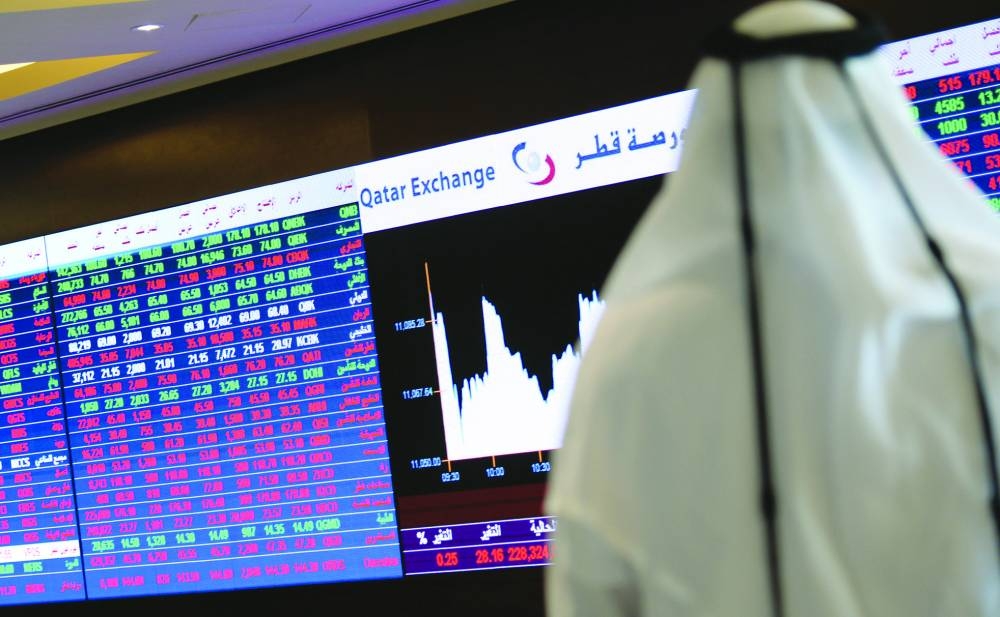QNB Financial Services (QNBFS) continues to remain “positive” longer-term on the Qatari market due to the country's macro strengths and expects flat second quarter normalised earnings for listed companies but a strong rebound in the remaining part of the year.
“While the Qatar Stock Exchange (QSE) second quarter (Q2) reporting season should generally be perceived positively, it is unlikely to drive near-term equity performance as the economy readjusts from elevated oil/gas prices and World Cup related activities. Global monetary conditions and recession fears should also continue to dominate sentiment,” QNBFS said in an earnings preview.
While QNBFS expects the market to remain "volatile", it continues to remain "positive" longer-term on the Qatari market due to the following reasons.
First, sanctions by Western countries on Russia are still causing global oil and gas supply concerns. While the recent US banking turmoil has increased global recession fears with oil and gas prices teetering at their lows since late 2021 (although recent Opec+ cuts will likely provide a floor), resilient consumers/labour markets and China’s reopening negates some of these effects.
Overall, still decent oil and gas prices should lead to higher government revenue/surplus for Qatar, enable flexibility in government expenditures and improve overall money supply (liquidity).
Second, with the recent successful hosting of the World Cup, perceived as one of the best editions and putting Qatar in the global spotlight, QNBFS is of the view that pockets of Qatari stock market should benefit from this success.
Some of the impact has been immediate, with Qatar registering record visitor arrivals thus far this year.
Third, over the medium- to long-term, the North Field Gas Expansion, a nascent but growing tourism/sporting sector and the Qatar National Vision 2030 investments will continue to be major growth drivers for local companies.
Fourth, on top of Qatar’s macro strengths, Qatari companies enjoy robust balance sheets backed by low leverage and decent RoEs, while Qatari banks stand out with their exceptional capital adequacy ratios, strong provision coverage and high profitability. This should help as global monetary conditions remain tight.
Fifth, the proposal by the QIA and General Retirement and Social Insurance Authority (GRSIA) recently announced restructuring their local equity portfolios, worth up to $3bn under a separate entity in a bid to increase market liquidity, is a potential tailwind for the overall stock market.
Such a move could lead to a minimum of $500mn in inflows according to market estimates. Additionally, also in May, the QIA committed up to QR1bn over five years to establish a permanent market-making programme.
This builds on the successful initial initiative launched in September, and is set to run over the next five years covering about 90% of the QSE market capitalisation.
Qatari valuations are looking cheaper historically and we stay bullish longer-term on Qatari equities given their defensive characteristics backed by their strong fundamentals.
The QSE’s aggregate valuation metrics look attractive considering the fact that QNBFS does not see any marked near-term earnings recession. Even as the economy moderates, it notes the QSE’s current PE is lower than its historical median.
Moreover, from a technical viewpoint, the QSE has not experienced two consecutive down years since 2001 – it has, on average, returned 19.6% the year following a negative annual performance, though with a wide range of 0.1% to 37.2%, QNBFS noted.
“We expect Q2, 2023 earnings for Qatari stocks under coverage to decline 21.4%/5.5% YoY/QoQ. The YoY decline in earnings mostly stems from Industries Qatar (IQCD’s) skewed base effects with its profit expected to more than halve; otherwise, we see flat earnings on the back of a moderating but strong economy, the ramping up of Qatar’s massive LNG expansion project as well as some pockets of post-World Cup momentum.
“Overall, excluding IQCD from aggregate earnings, we expect normalised aggregate earnings for our coverage universe to edge lower by 0.8% YoY/ 3.0% QoQ,” QNBFS said.
Business
QNBFS continues to remain 'positive' longer-term on Qatari market primarily on country's macro strengths

QNB Financial Services (QNBFS) continues to remain “positive” longer-term on the Qatari market due to the country's macro strengths and expects flat second quarter normalised earnings for listed companies but a strong rebound in the remaining part of the year

